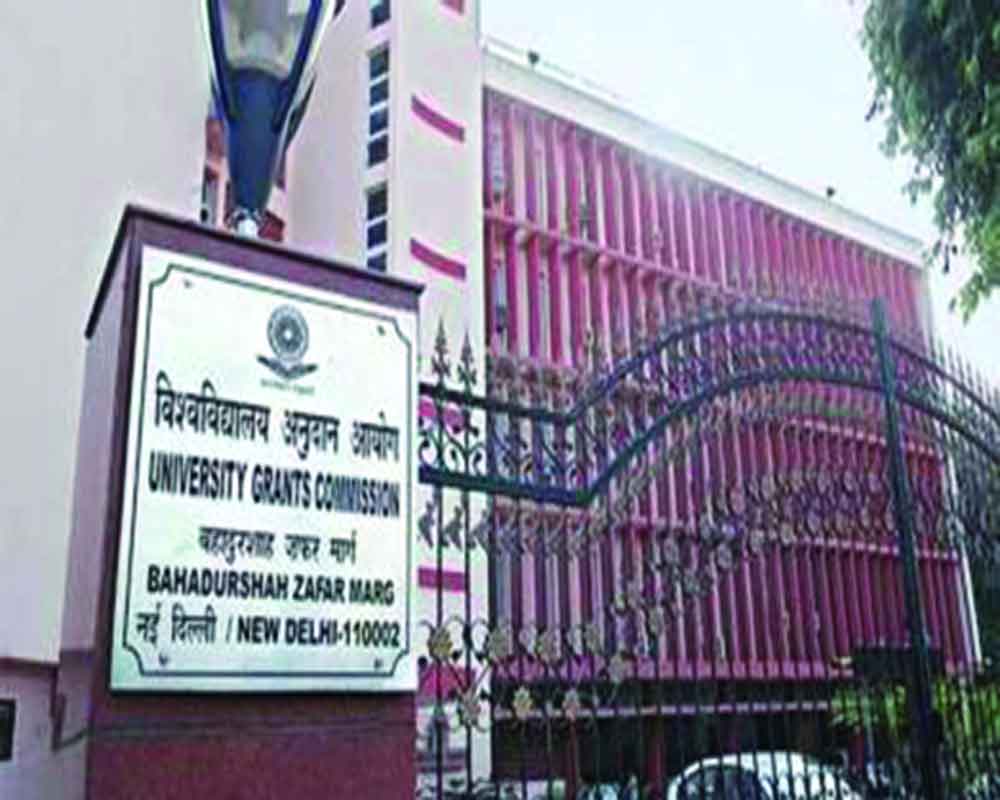Focus must on improving funding for state universities
As envisaged in the National Education Policy2020, the new phase of internalisation of India institutions is ushering in a paradigm shift in higher education. This is apparent from the University Grant Commission (UGC) allowinghigh-ranked Indian universities and colleges to collaborate on imparting Dual,Joint Degrees and Twinning Programmes with top foreign universities, that too without prior approval of the UGC. The approval of statutory councils or bodies will still be needed for professional programmes in engineering, medicine and law. This decision is bound to have a spiralling effect in offering a cross-cultural experience and promoting interdisciplinary education at par with the world standards. The arrangement would be to impart education in the conventional mode and not through open, distance or online learning. These international campuses and tie-ups apart from influx of foreign students in Indian universities would open unlimited avenues for free flow of ideas, new conventions,traditions, markedly different teaching and research methods. However, the biggest challenges in the long runwould be meeting the highest standards of academic excellence and safeguarding against the easing of the rules for academic collaborations in favour of the institutions with vested interests leading to monopolization and commercialisation of education by big sharks operational in the sector and making it out of reach for many deserving students of low income and deprived families. As per the draft regulations circulated in 2021, the eligibility criteria for foreign institutes suggested that the institutions must have a global ranking of less than 500. Any Indian institute accredited with the National Assessment and Accreditation Council (NAAC) with a minimum score of 3.01 or in the top 100 in the university category of the National institutional RankingFramework (NIRF) or an institution of Eminence can collaborate with any foreign institute in top 1,000 QS or Times Higher Education Ranking for joint degrees. The collaborating institutes will be allowed to offer three kinds of programmes -Twinning degree programmes,Joint degree programmes and Dual degree programmes. If an Indian institution partners with a foreign university to offer a Twinning programme, students would have to complete 30 per cent of the course's credits at the foreign university by means of an exchange programme. The same would be applicable to foreign students enrolling for a similar programme. For Joint degrees, the partner institution will have to sign an MoU. Students from India would be required to complete more than 30 per cent of their course credit at a foreign institute.
On the completion of the course, the degree would be awarded by the Indian institution along with the certificate of credit recognition. In case of Dual degree also students would have to complete 30 per cent of course credit at foreign institute,but, the degreeawarded by both Indian and Foreign institutes would indicate the credits earned at the respective institutions. The policy looks promising and forward looking on paper, but we have to consider our ground realities. We are losing out our best students who go abroad as our admission to premier institutions is competitive. Then, we follow a rigid system of 'rote' learning with more emphasis on marks scored than on 'grasping' and independent thinking. That is why, we mostly receive students from underdeveloped and developing countries of Africa and Asia. So, the need of the hour is to improve our system of education in accordance with the new NEP. During the past decade, the expanded schooling and greater reservations have redefined the student composition of public universities. The funding and enrolment in state universities are declining and the private universities are open to students who have paying capacity. This needs to change.
(The writer is a senior journalist and Chairman, Panwar Group of Institutions, Solan, Himachal Pradesh. The views expressed are personal.)


























